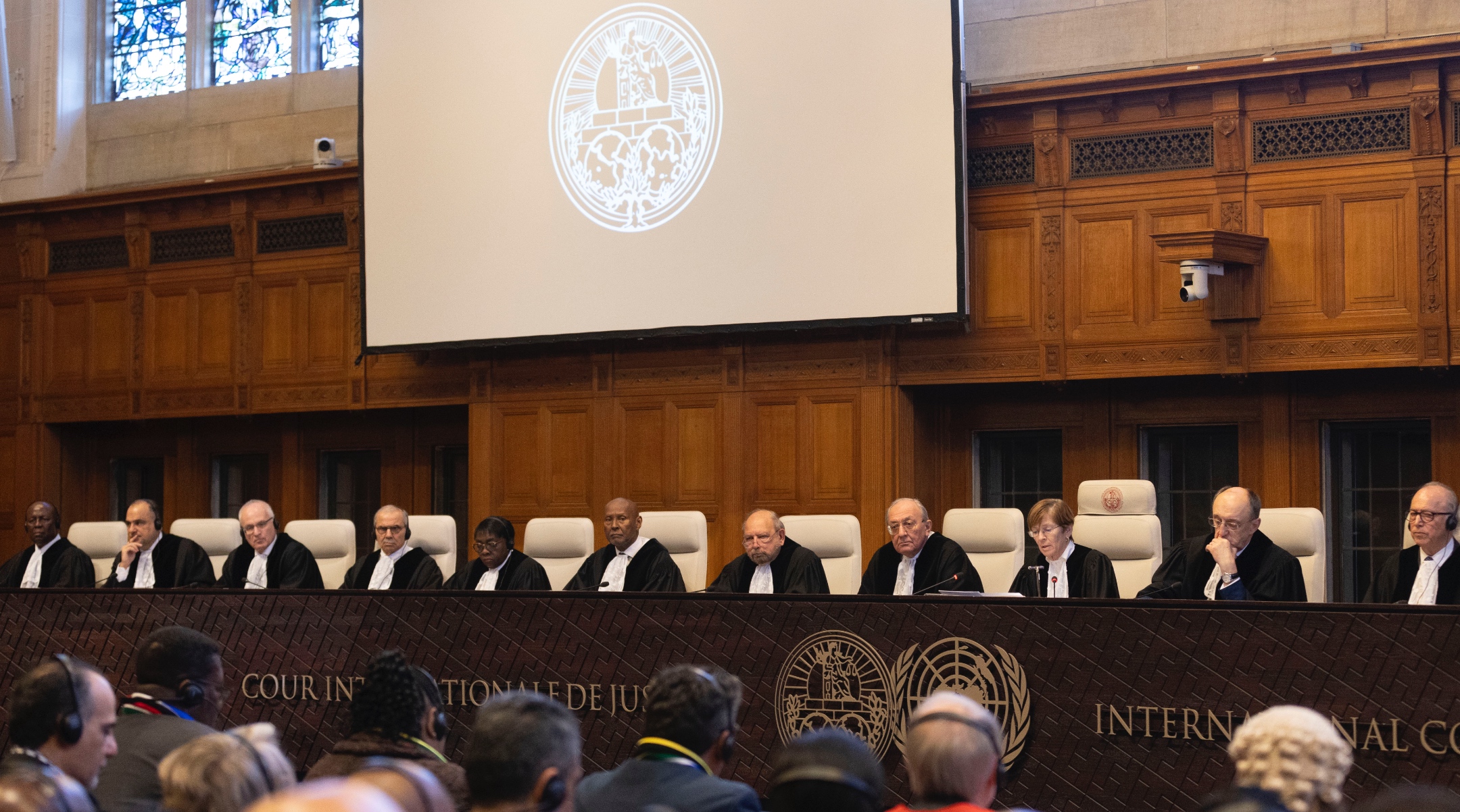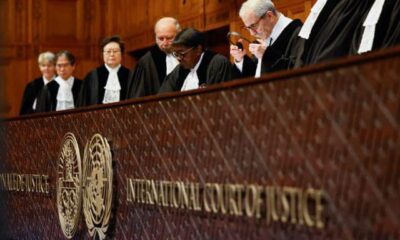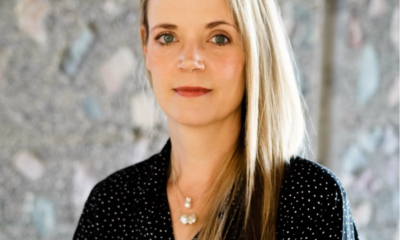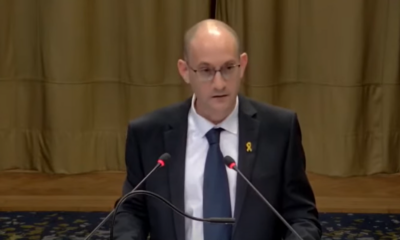
Banner

SA’s failed ICJ application— ‘a political stunt’
The International Court of Justice (ICJ) outright rejected on 16 February the South African government’s urgent request to stop a political offensive on Hamas fighters in Rafah.
The United Nations top court stated that a new order was unnecessary because the existing measures “are applicable throughout the Gaza Strip, including Rafah”.
“It’s a great pity that once again, instead of engaging to find an end to this terrible war and calling, most importantly, for the release of the hostages, South Africa is embarking on this pointless, unnecessary path,” says South African Jewish Board of Deputies National Chairperson Professor Karen Milner.
South African Zionist Federation (SAZF) spokesperson Rolene Marks agreed, saying, “This application was a means to protect Hamas, particularly in light of significant military losses suffered by the terrorist organisation, including 18 out of 24 Hamas battalions. This raises serious questions about the motivations behind the African National Congress [ANC] government’s actions.”
The South African government filed an original complaint against Israel at the ICJ on 29 December 2023, alleging that its war in Gaza breached the Genocide Convention. On 26 January, the court demanded that all hostages be released and ordered Israel to ensure that it protected Palestinian civilians and allowed in humanitarian aid. It declined to grant South Africa’s central request for a ceasefire.
“The court had already set measures relevant to the conduct of the war, and couldn’t be expected to set any additional measures,” says political and economic adviser Dr Frans Cronje. “The South African application was most likely an urgent attempt to stop or undermine Israeli military actions that have severely degraded Hamas’s operating abilities. Hamas – and Iran – needed a break in those military actions to stem further and deeper losses, and the South African action was likely brought with that in mind.”
In response to the ICJ’s denial of South Africa’s request, Israel Foreign Affairs Minister Israel Katz says, “We’ll continue to fight the blood libel that South Africa is promoting, and to uphold our right to defend ourselves against the Nazi Hamas murderers.”
Israel’s foreign affairs ministry spokesperson, Lior Hayat, says, “South Africa’s failed attempt to undermine Israel’s right to defend itself and its citizens from the Hamas terrorist organisation provides further proof that its claims are baseless and unsubstantiated. Through its actions, South Africa is serving as the legal arm of Hamas, and is working to advance the interests of this terrorist organisation which operates from within the civilian population of the Gaza Strip, including Rafah, as was witnessed in the hostage-rescue operation recently.
“Israel is acting and will continue to act based on its right to protect its citizens and to release the hostages, while remaining committed to upholding international law, facilitating the transfer of humanitarian aid, and making every effort to prevent harm to uninvolved civilians,” says Hayat. “This while Hamas terrorists commit war crimes and crimes against humanity and attack the citizens of Israel while using the civilian population of the Gaza Strip as human shields.
“The ICJ says that the order it has written stands,” says advocate Mark Oppenheimer. “This may chasten South Africa from bringing further complaints. The Israeli response made it quite clear that no further relief was warranted and that the new relief sought by South Africa was an abuse of the court process. The latest order from the ICJ echoes that sentiment. It also operates as a signal to Israel that it must abide by its existing obligations, but it definitely doesn’t stop it from engaging in a military campaign in Rafah.”
Professor Glen Segell, research fellow at the Ezri Center for Iran and & Gulf States Research, says, “The ICJ rejected the request as it was confident that Israel was doing everything that bound it to comply with existing measures. Technically then, the South Africa request is redundant as Rafah is part of Gaza and Israel is complying with the decision of 26 January. The ICJ and Israel are working in close contact, including the conveyance of information 24/7 on all its activities in Gaza.
“I’m surprised at the lack of professionalism of the department of international relations and cooperations’ legal team in not understanding how the ICJ works,” says Segell. “It’s rather embarrassing to see this new South African request to the ICJ that shows such a complete lack of legal knowledge.
“This new request may be aimed domestically,” he says. “I’m not surprised that the ANC would persist in political rhetoric and anti-Zionism, especially as the South African elections are approaching. South Africa is digging its own grave internationally and in relations with Israel as it’s now challenging the ICJ’s working processes. It further distances Israel and South Africa’s relations.”
Sara Gon, the head of strategic engagement at the Institute of Race Relations, says, “I wasn’t surprised that the ICJ rejected South Africa’s request. It would have required the ICJ to decide how the war should be conducted. This isn’t its job, and it’s probably for this reason that its original judgment didn’t order a ceasefire. That was beyond said remit.
“All that the ICJ could do to show it was giving consideration to South Africa’s request was to reiterate the obligations it imposed in the original judgment,” says Gon. “Since the Rafah operation hasn’t yet properly commenced and it’s making efforts to get the population to leave the area first, no complaint can be laid.
“South Africa is overreaching because it’s saying in effect that Israel, and literally only Israel, has to safeguard civilians above all other aims,” she says. “That’s not Israel’s military or political priority. Anything it does has to be assisted by Hamas or the international community. I think the non-existent relationship between the ANC government and Israel will become more than non-existent – if that’s possible. Israel will really look at us [South Africa] with the contempt we deserve.”
South Africa, however, said it welcomed the ICJ’s decision. “The court affirms our view that the perilous situation demands immediate and effective implementation of the provisional measures indicated by the court in its order of 26 January, which are applicable throughout the Gaza Strip, and has clarified that this includes Rafah,” said the presidency in a statement. “South Africa will continue to use existing channels such as the United Nations Security Council to ensure full and effective implementation of the existing provisional measures.”
Says Milner, “The South African government has again been somewhat sparing with the truth in the way in which it has depicted the latest ICJ ruling. The ANC government requested that the ICJ take action to prevent Israel’s action in Rafah, and this was refused by the ICJ: a clear denial of South Africa’s position that Israel is committing genocide.”
Says Marks, “The SAZF welcomes the recent rejection of South Africa’s application for additional provisional measures by the ICJ. It’s evident that South Africa’s application wasn’t grounded in genuine efforts to promote peace and stability in the region, but rather served as a thinly veiled attempt to shield its ally, Hamas, from accountability.
“We urge South Africa to reconsider its approach and instead focus on initiatives that promote genuine dialogue, reconciliation, and ultimately lasting peace for all parties involved.”










